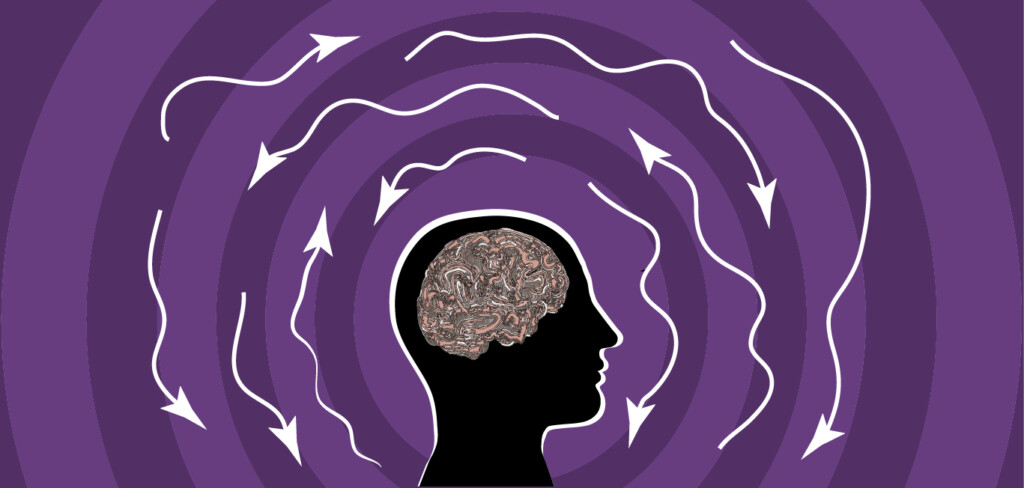Coping with Scam Victim Trauma: Exploring Positive and Negative Coping Mechanisms
Scam Victim Recovery Psychology
Authors:
• Vianey Gonzalez B.Sc(Psych) – Licensed Psychologist Specialty in Crime Victim Trauma Therapy, Neuropsychologist, Certified Deception Professional, Psychology Advisory Panel & Director of the Society of Citizens Against Relationship Scams Inc.
• Tim McGuinness, Ph.D. – Anthropologist, Scientist, Director of the Society of Citizens Against Relationship Scams Inc.
About This Article
In the aftermath of becoming a victim to a scam, individuals often grapple with a myriad of emotions and challenges, leading to the adoption of coping mechanisms, both positive and negative.
Positive coping strategies such as seeking social support, practicing mindfulness, and engaging in constructive activities can facilitate recovery, healing and resilience.
Conversely, negative coping mechanisms like avoidance, substance abuse, and self-blame can exacerbate emotional distress and hinder recovery.
Recognizing these coping patterns is critical for obtaining targeted support and intervention for scam victims. By encouraging open communication, offering practical assistance, and promoting healthy coping strategies, victims and their supporters can empower individuals to navigate the complexities of post-scam recovery with resilience and hope.
Coping Mechanisms and Scam Victim Trauma: Exploring How Positive and Negative Coping Mechanisms Improve or Damage Scam Victim Recovery
Scam victimization can inflict profound emotional and psychological trauma on scam victims, leaving them grappling with feelings of betrayal, shame, and financial devastation and struggling with coping mechanisms.
Coping with such trauma is a complex process that often involves a range of coping mechanisms, both positive and negative. In this article, we delve into the various coping strategies employed by scam victims, examining their efficacy, implications, and potential for healing.
Positive Coping Mechanisms
- Seeking Social Support: One of the most effective ways for scam victims to cope with their trauma is by seeking social support from friends, family, or support groups. Sharing their experiences with others who understand and empathize with their plight can provide validation, comfort, and a sense of belonging. Professionally managed support can also offer practical advice and coping strategies, empowering victims to navigate their recovery journey more effectively.
- Engaging in Self-Care Practices: Engaging in self-care practices such as exercise, mindfulness, meditation, and relaxation techniques can help scam victims manage stress, anxiety, and depression. Taking time to focus on their physical and emotional well-being allows individuals to recharge, build resilience, and regain a sense of control over their lives. Additionally, self-care activities provide opportunities for self-reflection and introspection, facilitating the processing of traumatic experiences.
- Seeking Professional Help: Seeking professional help in support groups, and from therapists, counselors, or mental health professionals is essential for scam victims struggling to cope with trauma. Therapy provides a safe and supportive environment for individuals to explore their emotions, confront maladaptive coping patterns, and develop healthy coping strategies. Therapeutic modalities such as cognitive-behavioral therapy (CBT) or eye movement desensitization and reprocessing (EMDR) can help scam victims reframe negative beliefs, process traumatic memories, and rebuild their sense of self.
Negative Coping Mechanisms:
Avoidance and Denial
In the aftermath of a scam, many victims resort to avoidance and denial as coping mechanisms, attempting to suppress or numb their painful emotions. However, avoiding or denying the reality of their trauma only serves to prolong their suffering and impedes the healing process. By refusing to confront their feelings, victims may inadvertently exacerbate their psychological distress and hinder their recovery efforts.
Avoidance and denial are common coping mechanisms that individuals employ when faced with traumatic experiences such as falling victim to a scam. While these strategies may offer temporary relief from distressing emotions, they can ultimately impede the healing process and perpetuate psychological suffering.
Here are some examples of avoidance and denial coping mechanisms:
- Ignoring or downplaying the severity of the scam
- Refusing to discuss or acknowledge the scam with others
- Pretending that the scam never happened
- Avoiding situations or triggers that remind them of the scam
- Distracting themselves with work, hobbies, or other activities to avoid thinking about the scam
- Minimizing the impact of the scam on their finances or emotional well-being
- Rationalizing the scam as a one-time event that won’t happen again
- Blaming themselves or others for the scam
- Engaging in excessive internet or social media use to escape from thoughts of the scam
- Using humor or sarcasm to deflect conversations about the scam
- Suppressing emotions related to the scam, such as anger, shame, or sadness
- Avoiding seeking help or support from others
- Turning to substances such as alcohol or drugs to numb emotional pain
- Engaging in risky behaviors as a form of self-sabotage
- Obsessively focusing on unrelated problems or concerns to avoid addressing the scam
- Engaging in anger-based activities, such as vigilantism, scammer exposing, or scam baiting
- Engaging in self-destructive behaviors, such as self-harm or reckless spending
- Withdrawing from social interactions or cutting off contact with friends and family
- Projecting feelings of guilt or shame onto others instead of taking responsibility for their own actions
- Engaging in excessive work or productivity to avoid confronting emotions related to the scam
- Resorting to magical thinking or superstitions to avoid facing reality
- Dismissing or discounting the experiences of others who have been scammed
- Creating a false sense of security by avoiding situations where they may be vulnerable to scams in the future
- Seeking constant reassurance or validation from others to avoid feelings of insecurity or inadequacy
- Suppressing memories of the scam through dissociation or dissociative amnesia
- Engaging in religious or spiritual practices as a means of escaping from thoughts of the scam
- Engaging in excessive exercise or physical activity to distract from thoughts of the scam
- Seeking constant validation through social media or online interactions to avoid feelings of insecurity
- Blaming external factors or circumstances for falling victim to the scam
- Avoiding discussions about personal finances or budgeting to evade feelings of financial insecurity
- Creating a false narrative or alternative reality where the scam never occurred
- Seeking out conspiracy theories or alternative explanations to justify the scam
- Engaging in thrill-seeking or risky behaviors to distract from feelings of vulnerability
- Dismissing the severity of the scam by comparing it to the experiences of others
- Procrastinating or delaying important tasks or responsibilities to avoid confronting the aftermath of the scam
- Engaging in compulsive or repetitive behaviors as a form of distraction
- Using humor or sarcasm to mask feelings of fear or uncertainty about the future
- Developing a cynical or pessimistic outlook on life as a defense mechanism against further disappointment
- Avoiding seeking professional help or therapy out of fear of judgment or stigma
- Engaging in self-isolating behaviors to avoid confronting feelings of shame or embarrassment
- Engaging in excessive spending or retail therapy to cope with feelings of loss or inadequacy
- Engaging in excessive cleaning or organizing as a means of regaining control in other areas of life
- Avoiding making long-term plans or commitments to evade feelings of uncertainty about the future
- Overworking or burning oneself out to avoid confronting emotions related to the scam
- Engaging in passive-aggressive behaviors as a way to express anger or frustration indirectly
- Using substances such as food or caffeine to cope with feelings of anxiety or stress
- Engaging in escapist behaviors such as binge-watching television or movies to avoid reality
- Repeatedly checking email or social media for updates or messages related to the scam
- Engaging in self-blame or self-criticism as a means of avoiding holding others accountable for the scam
- Avoiding seeking legal recourse or restitution out of fear of retaliation or further victimization
- Engaging in excessive planning or list-making as a way to avoid addressing underlying emotions or issues
While avoidance and denial coping mechanisms may provide temporary relief, they ultimately hinder the process of healing and recovery. It is essential for individuals to recognize and address these maladaptive strategies in order to confront their emotions, seek support, and move forward in a healthy and productive manner.
Substance Abuse
Escaping into substance abuse, such as alcohol or drugs, is another negative coping mechanism adopted by some scam victims.
Substance abuse provides temporary relief from emotional pain and distress but ultimately exacerbates mental health issues and complicates recovery. Moreover, substance abuse can lead to addiction, financial problems, and further victimization, perpetuating a cycle of harm and self-destruction.
Isolation and Withdrawal
Feeling ashamed or embarrassed about their victimization, some individuals may withdraw from social interactions and isolate themselves from others. Isolation intensifies feelings of loneliness, alienation, and despair, exacerbating the impact of trauma on mental health and well-being. Furthermore, withdrawing from support networks deprives victims of valuable resources and prevents them from accessing the assistance they need to heal and recover.
Isolation and withdrawal are common coping mechanisms that scam victims may employ as they navigate the aftermath of falling prey to a scam. Here are some additional insights into isolation and withdrawal, along with examples of behaviors that scam victims might exhibit:
Isolation involves distancing oneself from others emotionally, socially, or physically, while withdrawal entails removing oneself from social interactions or activities altogether. Both can serve as ways for scam victims to shield themselves from further emotional harm or to cope with feelings of shame, embarrassment, or vulnerability.
Behaviors Associated with Isolation and Withdrawal:
- Avoiding social gatherings or events where the scam might be discussed or brought up.
- Declining invitations from friends or family members to spend time together.
- Disconnecting from social media platforms or online communities to avoid reminders of the scam.
- Ignoring phone calls, texts, or emails from loved ones out of fear of judgment or criticism.
- Refusing to seek help or support from others, including mental health professionals or support groups.
- Spending long periods alone at home, avoiding contact with others as much as possible.
- Canceling appointments or meetings with friends, family, or professionals without explanation.
- Lying or making excuses to avoid disclosing details about the scam or its impact on their life.
- Preferring solitary activities such as reading, watching television, or engaging in hobbies alone.
- Withdrawing from previously enjoyed activities or interests due to a lack of motivation or interest.
Effects of Isolation and Withdrawal
Isolation and withdrawal can exacerbate feelings of loneliness, depression, and anxiety, leading to further emotional distress for scam victims. Additionally, these behaviors can hinder the healing process and delay recovery by preventing individuals from accessing support networks or seeking professional help. Prolonged isolation may also contribute to feelings of alienation and disconnection from others, making it harder for scam victims to rebuild trust and relationships in the long term.
Addressing Isolation and Withdrawal
Recognizing the signs of isolation and withdrawal is the first step toward addressing these behaviors and supporting scam victims in their recovery journey. Encouraging open communication, providing a non-judgmental space for sharing experiences, and offering practical assistance can help individuals feel less isolated and more supported during this challenging time. Encouraging participation in social activities, reconnecting with loved ones, and seeking professional counseling or therapy can also help scam victims gradually overcome feelings of isolation and withdrawal and rebuild their sense of connection and belonging.
Recognizing and Overcoming Negative Coping Mechanisms in Scam Victims
Becoming a scam victim can have devastating consequences, not only financially but also emotionally and psychologically.
In the aftermath of a scam, individuals may resort to negative coping mechanisms as they struggle to process their experiences and navigate the challenges of recovery. Recognizing these coping mechanisms is necessary for scam victims themselves and for providing appropriate support and intervention to scam victims.
Identifying Negative Coping Mechanisms:
- Isolation and Withdrawal: Scam victims may withdraw from social interactions and isolate themselves out of shame, embarrassment, or fear of judgment.
- Avoidance and Denial: Some individuals may avoid confronting the reality of their situation and deny the impact of the scam on their lives, leading to further emotional distress.
- Substance Abuse: Coping with the trauma of being scammed may drive individuals to turn to alcohol, drugs, or other substances as a means of escape.
- Escapism: Engaging in excessive screen time, gaming, or other activities to distract oneself from facing the consequences of the scam.
- Self-Blame and Guilt: Scam victims may internalize feelings of blame and guilt, believing they should have known better or prevented the scam from happening.
- Financial Recklessness: Some individuals may engage in impulsive spending or risky financial behavior as a way to regain a sense of control or cope with feelings of loss.
- Emotional Numbing: Suppressing or numbing emotions through avoidance or detachment, making it difficult to process feelings of grief, anger, or betrayal.
Overcoming Negative Coping Mechanisms:
- Encourage Open Communication: Create a safe and non-judgmental space for scam victims to express their feelings and share their experiences without fear of criticism or stigma. However, always be honest – brutally honest if needed.
- Provide Emotional Support: Offer empathy, validation, and reassurance to help individuals feel understood and supported as they navigate their emotions and coping strategies.
- Offer Practical Assistance: Provide practical help with financial planning, debt management, or legal assistance to alleviate the stress and burden of the scam’s aftermath.
- Promote Healthy Coping Strategies: Encourage engagement in positive coping mechanisms such as exercise, mindfulness, creative expression, or seeking professional counseling.
- Encourage Social Connections: Facilitate opportunities for social support and connection by encouraging participation in support groups, community activities, or reconnecting with friends and family.
- Challenge Negative Beliefs: Help individuals challenge self-blame, guilt, and other negative beliefs by reframing their thoughts and focusing on self-compassion and resilience.
- Set Realistic Goals: Encourage individuals to set achievable goals for recovery, whether financial, emotional, or personal, and celebrate progress along the way.
- Seek Professional Help: Encourage scam victims to seek professional support, and counseling or therapy from mental health professionals experienced in trauma and post-scam recovery.
Summary
Coping with scam victim trauma requires a multifaceted approach that addresses both the positive and negative coping mechanisms employed by individuals. While seeking social support, engaging in self-care practices, and seeking professional help can facilitate healing and resilience, avoidance, substance abuse, and isolation only serve to perpetuate suffering and impede recovery. By raising awareness of effective coping strategies and providing support and resources to scam victims, we can empower individuals to overcome trauma, reclaim their lives, and thrive in the aftermath of victimization.
Recognizing and addressing negative coping mechanisms in scam victims is essential for promoting healing, resilience, and recovery. By providing support, empathy, and practical assistance, we can help individuals overcome the challenges of scam victimization and rebuild their lives with strength and resilience. Together, we can empower scam victims to reclaim their sense of agency, restore trust, and move forward with hope and optimism.
Please Rate This Article
Please Leave Us Your Comment
Also, tell us of any topics we might have missed.
Leave a Reply
Thank you for your comment. You may receive an email to follow up. We never share your data with marketers.
-/ 30 /-
What do you think about this?
Please share your thoughts in a comment above!
More About Coping Mechanisms:
- SCARS 5 Coping Techniques For Traumatized Scam Victims – 2023 (scamsnow.com)
- Trauma Grief & Humor As A Coping Mechanism (romancescamsnow.com)
- Humor As A Tool In Scam Victim Recovery – 2019 (romancescamsnow.com)
- Scam Victims Editing Their Stories To Promote Recovery From Scams 2024 (scamsnow.com)
- Importance of Scam Victims’ Learning in Recovery from Scams 2024 (scamsnow.com)
- Scam Victims Suppressing Trauma Or Avoiding Recovery And Healing 2024 (scamsnow.com)
- Coping Strategies for Scam Victim Trauma Survivors (romancescamsnow.com)
- Hate As A Coping Mechanism (romancescamsnow.com)
- Scam Victims Suppressing Trauma Or Avoiding Recovery And Healing 2024 (scamsnow.com)
- Scam Victims Use Work To Avoid Healing (scamsnow.com)
-/ 30 /-
What do you think about this?
Please share your thoughts in a comment above!
SCARS LINKS: AgainstScams.org RomanceScamsNOW.com ContraEstafas.org ScammerPhotos.com Anyscam.com ScamsNOW.com
reporting.AgainstScams.org support.AgainstScams.org membership.AgainstScams.org donate.AgainstScams.org shop.AgainstScams.org
youtube.AgainstScams.org linkedin.AgainstScams.org facebook.AgainstScams.org
ARTICLE RATING
TABLE OF CONTENTS
CATEGORIES
MOST POPULAR COMMENTED ARTICLES
POPULAR ARTICLES
U.S. & Canada Suicide Lifeline 988
![NavyLogo@4x-81[1]](https://scamsnow.com/wp-content/uploads/2025/04/NavyLogo@4x-811.png)
ARTICLE META
WHAT PEOPLE ARE TALKING ABOUT LATEST SITE COMMENTS
See Comments for this Article at the Bottom of the Page
on Scam Victims Use Work To Avoid Healing: “The last 6 years have been the most difficult of my life. The pandemic, having both parents in the hospital…” Jun 29, 18:38
on Entitlement Mentality And How Scam Victims Often Lose Their Path To Recovery – 2024: “Thank you for this discussion of entitlement. I can see from the descriptions listed that I have not felt entitlement.…” Jun 29, 18:22
on Samurai Wisdom and Rituals for Clearing the Mind After Scam Trauma – 2025 – [VIDEOS]: “A great guide on how to move forward in our recovery process with a calm mind, cleansed on an ongoing…” Jun 28, 07:34
on Delayed Gratification and Patience in Scam Victim Recovery – 2025 – [VIDEOS]: “We want to recover quickly and… we make new mistakes. How not to speed up the recovery process, how to…” Jun 28, 06:41
on The Unique Injury Of Betrayal Trauma On Scam Victims – 2024: “Primarily because you did not see it coming” Jun 27, 23:57
on Changes In A Scam Victim’s Life: “I really detest the way my trust in others has been affected by the scamming I went through. I used…” Jun 27, 14:47
on The Unique Injury Of Betrayal Trauma On Scam Victims – 2024: “Betrayal Trauma is the worst feeling ever. Why does it seem so much worse when a scammer does that to…” Jun 27, 14:34
on EMDR Therapy For Scam Victims’ Trauma – A Part Of The Recovery Process For Many – 2024: “Very comprehensive article explaining all aspects of EMDR. I’d only heard of it before and now I have a much…” Jun 26, 19:01
on Forgiving Yourself After Surviving a Romance or Investment Scam – 2025: “Thank you for this valuable article. Self-forgiveness was for me the biggest step that led to my recovery. That also…” Jun 26, 17:28
on Counseling And Your Native Language: “These points make perfect sense. I can’t imagine trying to express complex emotions in a second language. I realize many…” Jun 26, 16:05
on Thought-Terminating Cliches – How What You and Others Say Stops Critical Thinking and Recovery for Scam Victims – 2025: “I didn’t realize that these “innocent phrases” clichés ending thoughts, can have such effect / negative -inhibiting / on our…” Jun 26, 14:48
on Scam Victim Resistance In Support Groups Therapy Or Counseling Can Destroy Opportunities For Recovery – 2024: “Working with either a support group or therapist to me means a self commitment to actively participating in the therapy.…” Jun 24, 21:01
on ‘I Just Want To Forget It’ – Denial & Avoidance Are Natural But Will Not Help Scam Victims On Their Path To Recovery From Scams – 2024: “My financial loss, the shock and betrayal of the crime ending all combined to fray my nerves and spend hours…” Jun 24, 20:10
on You Hate Being Told What To Do? How Your Rebellious Mentality Can Sabotage Your Recovery – 2025: “I am a bit of a rebel, and the moment someone tells me to do something, worse, does it even…” Jun 24, 15:04
on You Hate Being Told What To Do? How Your Rebellious Mentality Can Sabotage Your Recovery – 2025: “You are very welcome” Jun 24, 03:01
on You Hate Being Told What To Do? How Your Rebellious Mentality Can Sabotage Your Recovery – 2025: “This is a great article, which makes perfect sense as to why anyone would resist the help offered to them.…” Jun 23, 20:01
on Scam Victims’ Responsibilities – 2021 [Updated 2025]: “Thank you for this article. As I continue my journey, I focus on the here and now and let the…” Jun 21, 16:26
on Scam Victims Avoid Or Escape The Aftermath Of Scams – How Denial And Distraction Avoid Confronting Reality – 2024: “In the earliest days after my crime I felt powerless, helpless and weak. I had been through so much in…” Jun 21, 14:46
on Problems and Opportunities – Thoughts on Psychological Reframing – 2025: “An article that really helped me look at the problems in my life from a different point of view and…” Jun 21, 14:42
Important Information for New Scam Victims
Please visit www.ScamVictimsSupport.org – a SCARS Website for New Scam Victims & Sextortion Victims
SCARS Institute now offers a free recovery program at www.SCARSeducation.org
Please visit www.ScamPsychology.org – to more fully understand the psychological concepts involved in scams and scam victim recovery
If you are looking for local trauma counselors, please visit counseling.AgainstScams.org
If you need to speak with someone now, you can dial 988 or find phone numbers for crisis hotlines all around the world here: www.opencounseling.com/suicide-hotlines
Statement About Victim Blaming
Some of our articles discuss various aspects of victims. This is both about better understanding victims (the science of victimology) and their behaviors and psychology. This helps us to educate victims/survivors about why these crimes happened and not to blame themselves, better develop recovery programs, and help victims avoid scams in the future. At times, this may sound like blaming the victim, but it does not blame scam victims; we are simply explaining the hows and whys of the experience victims have.
These articles, about the Psychology of Scams or Victim Psychology – meaning that all humans have psychological or cognitive characteristics in common that can either be exploited or work against us – help us all to understand the unique challenges victims face before, during, and after scams, fraud, or cybercrimes. These sometimes talk about some of the vulnerabilities the scammers exploit. Victims rarely have control of them or are even aware of them, until something like a scam happens, and then they can learn how their mind works and how to overcome these mechanisms.
Articles like these help victims and others understand these processes and how to help prevent them from being exploited again or to help them recover more easily by understanding their post-scam behaviors. Learn more about the Psychology of Scams at www.ScamPsychology.org
SCARS INSTITUTE RESOURCES:
If You Have Been Victimized By A Scam Or Cybercrime
♦ If you are a victim of scams, go to www.ScamVictimsSupport.org for real knowledge and help
♦ Enroll in SCARS Scam Survivor’s School now at www.SCARSeducation.org
♦ To report criminals, visit https://reporting.AgainstScams.org – we will NEVER give your data to money recovery companies like some do!
♦ Follow us and find our podcasts, webinars, and helpful videos on YouTube: https://www.youtube.com/@RomancescamsNowcom
♦ Learn about the Psychology of Scams at www.ScamPsychology.org
♦ Dig deeper into the reality of scams, fraud, and cybercrime at www.ScamsNOW.com and www.RomanceScamsNOW.com
♦ Scam Survivor’s Stories: www.ScamSurvivorStories.org
♦ For Scam Victim Advocates visit www.ScamVictimsAdvocates.org
♦ See more scammer photos on www.ScammerPhotos.com
You can also find the SCARS Institute on Facebook, Instagram, X, LinkedIn, and TruthSocial
Psychology Disclaimer:
All articles about psychology and the human brain on this website are for information & education only
The information provided in this and other SCARS articles are intended for educational and self-help purposes only and should not be construed as a substitute for professional therapy or counseling.
Note about Mindfulness: Mindfulness practices have the potential to create psychological distress for some individuals. Please consult a mental health professional or experienced meditation instructor for guidance should you encounter difficulties.
While any self-help techniques outlined herein may be beneficial for scam victims seeking to recover from their experience and move towards recovery, it is important to consult with a qualified mental health professional before initiating any course of action. Each individual’s experience and needs are unique, and what works for one person may not be suitable for another.
Additionally, any approach may not be appropriate for individuals with certain pre-existing mental health conditions or trauma histories. It is advisable to seek guidance from a licensed therapist or counselor who can provide personalized support, guidance, and treatment tailored to your specific needs.
If you are experiencing significant distress or emotional difficulties related to a scam or other traumatic event, please consult your doctor or mental health provider for appropriate care and support.
Also read our SCARS Institute Statement about Professional Care for Scam Victims – click here
If you are in crisis, feeling desperate, or in despair, please call 988 or your local crisis hotline.
More ScamsNOW.com Articles
A Question of Trust
At the SCARS Institute, we invite you to do your own research on the topics we speak about and publish. Our team investigates the subject being discussed, especially when it comes to understanding the scam victims-survivors’ experience. You can do Google searches, but in many cases, you will have to wade through scientific papers and studies. However, remember that biases and perspectives matter and influence the outcome. Regardless, we encourage you to explore these topics as thoroughly as you can for your own awareness.















![scars-institute[1]](https://scamsnow.com/wp-content/uploads/2025/04/scars-institute1.png)
![niprc1.png1_-150×1501-1[1]](https://scamsnow.com/wp-content/uploads/2025/04/niprc1.png1_-150x1501-11.webp)

In the beginning weeks after the scam ended, I think I engaged in 90% of the denial and avoidant coping mechanisms listed here. As I began to heal, I realized I needed to talk about this with my therapist, spend time with my friends and get out of my house, talk about it with a select few family members, join a support group (SCARS) and enroll in the SCARS Survivors School. All of these actions helped me to recognize that I’m a victim, eliminate the self-blame and guilt talk in my head and to learn why and how this all happened to me. I’m developing coping skills I never had before and they’ve been so instrumental in instilling a sense of commitment to doing all I can to survive this horrible experience. It’s so important to recognize the negative along with the positive. This is a great article and gives me some insight into the progress I’ve made.
I see from this article I am on the road toward positive coping with my crime. However, I do see some items listed in the negative coping methods that are part of me as well. Not many, but a few. Most of my social avoidance comes because I live in a very close minded rural area. The families have intermarried and are mostly all related to one another. While they live with domestic abuse, substance abuse and gambling, they have a narrow approach to scam/fraud/crime. They maintain that the victim should have been able to see what was happening and taken appropriate steps to get out on their own. There is considerable shaming here. As a result, I don’t bring up my crime. Afterall, I’ve lived here approximately 3 years and many do not even know me. I have tried talking about my crime twice and it did not go well. But I do have a very good trauma therapist so I have a way to talk without feeling shame or loss of safety. Other than my husband no one in my family knows what happened. They are very prone to shaming and blaming as well. I get exercise, and I participate in the the support group every Wednesday through SCARS. This group is wonderfully supportive. Currently I meet with my therapist twice weekly. I work part-time and I dabble in artistic modes. Although I was involved in a very intense romance scam, my husband has been so supportive and we’ve grown closer in the last months.
A great article that would help anyone needing to learn to cope with trauma. I really like when the articles end with an uplifting positive message like this one “move forward with hope and optimism.”